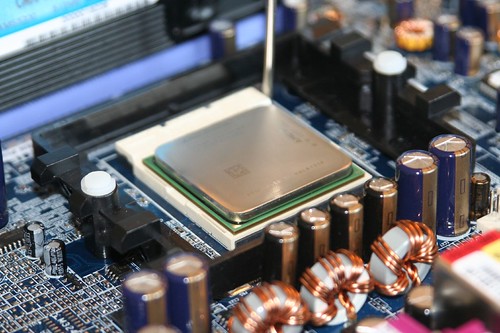While Intel's main competitor AMD (Advanced Micro Devices) offers aggressively priced, high-quality components, there are a few reasons why an Intel CPU may be better for your particular needs.
Power Consumption

For netbooks, Intel's Atom CPU uses very little electricity--as little as 5 watts. A comparable AMD CPU may use two to three times as much wattage, which has a noticeable effect on a netbook's battery power.
Video of the Day
Video of the Day
Heat Generation
While AMD and Intel regularly trade places depending on what performance benchmark you're using, Intel CPUs do have a reputation for generating less heat, which is in part thanks to lower wattage requirements, like their netbook parts. In a compact environment like a mini-computer, Intel may be a better choice.
Compatibility
As Intel CPUs are more common in the market, a wider range of motherboards are available. This means you can choose from a wider variety of features, and it's easier to find a lower price than a comparable AMD-compatible motherboard.
Intergrated Memory Controllers
This technology allows a CPU to coordinate the activity of all of its cores, and it improves how instructions are temporarily stored and retrieved. Intel's movement to QuickPath Interconnect put it on equal memory footing with AMD, and Intel's powerful Core i7 processors coupled with this technology allow a higher performance ceiling.
Fabrication Capacity
Intel operates 15 CPU fabrication plants across the world, while AMD spun off its small handful of plants into a separate organization that is substantially owned by a third party. Intel's larger production capacity allows them to bring a larger amount of CPUs to market in a shorter amount of time, making you more likely to be able to find the CPU you want.